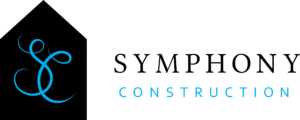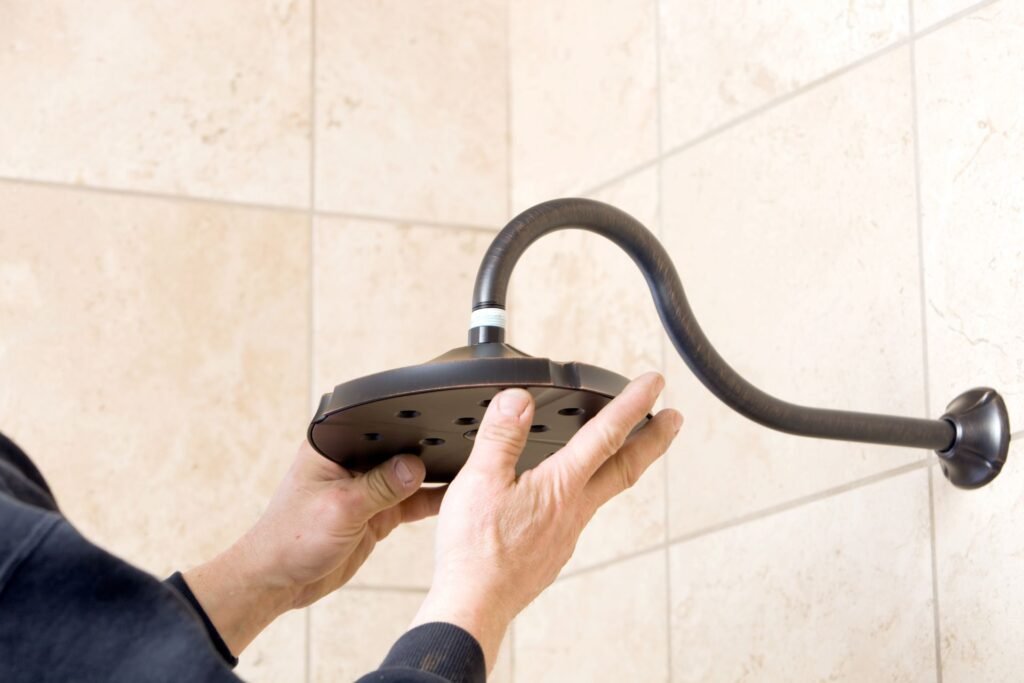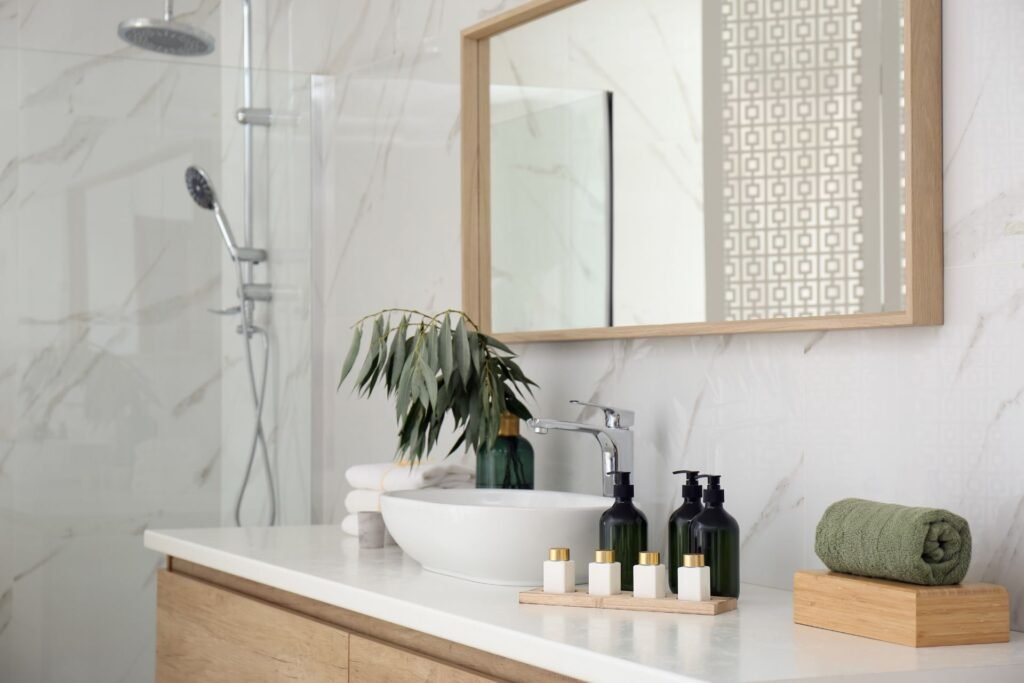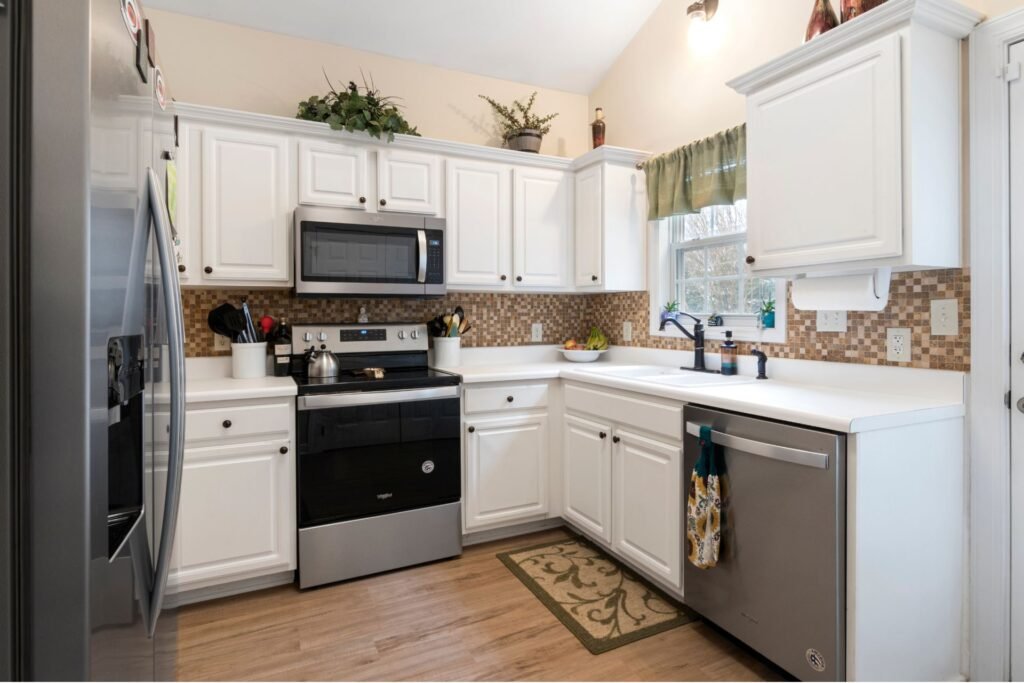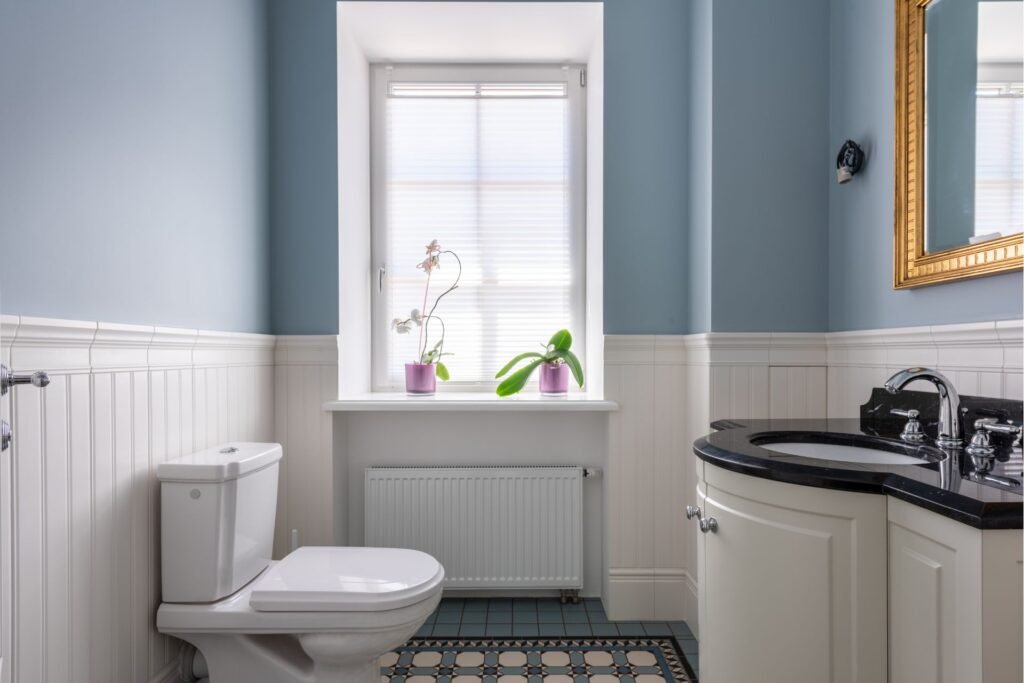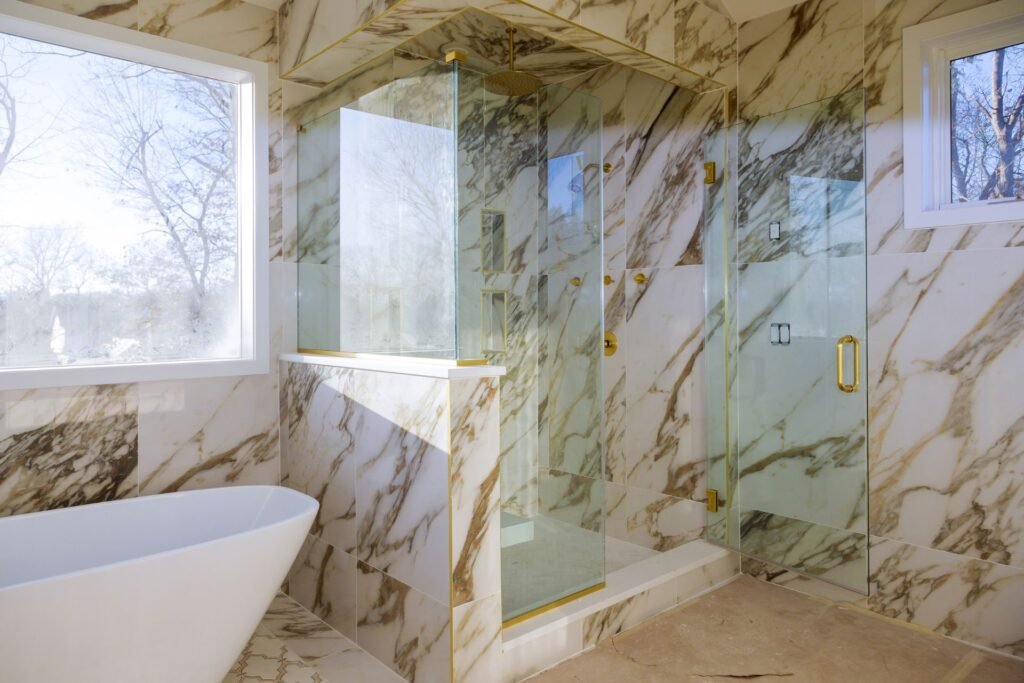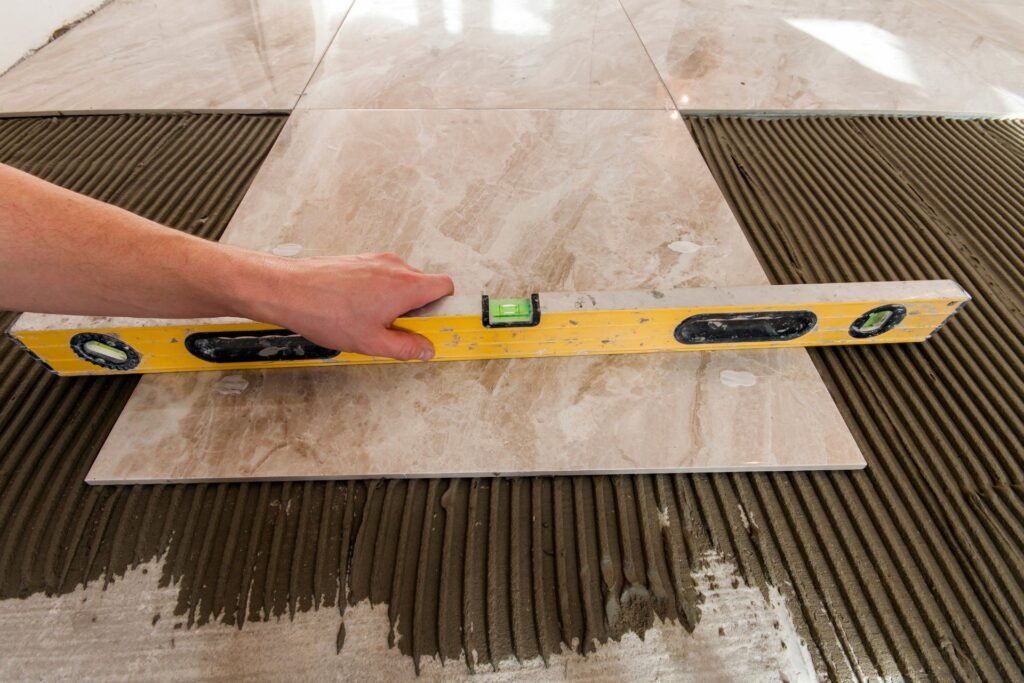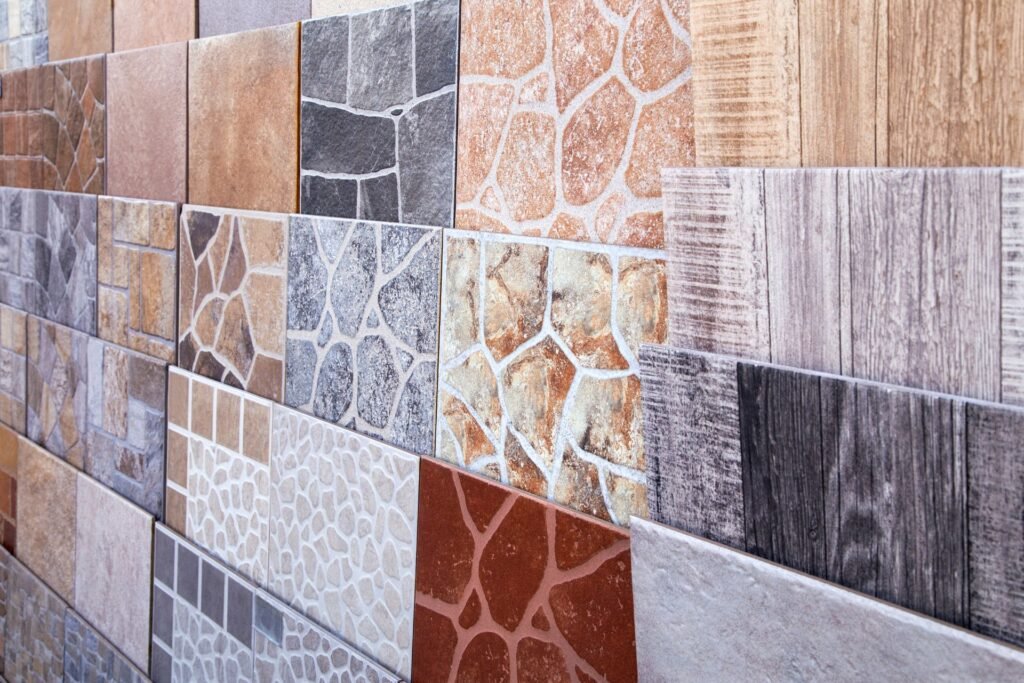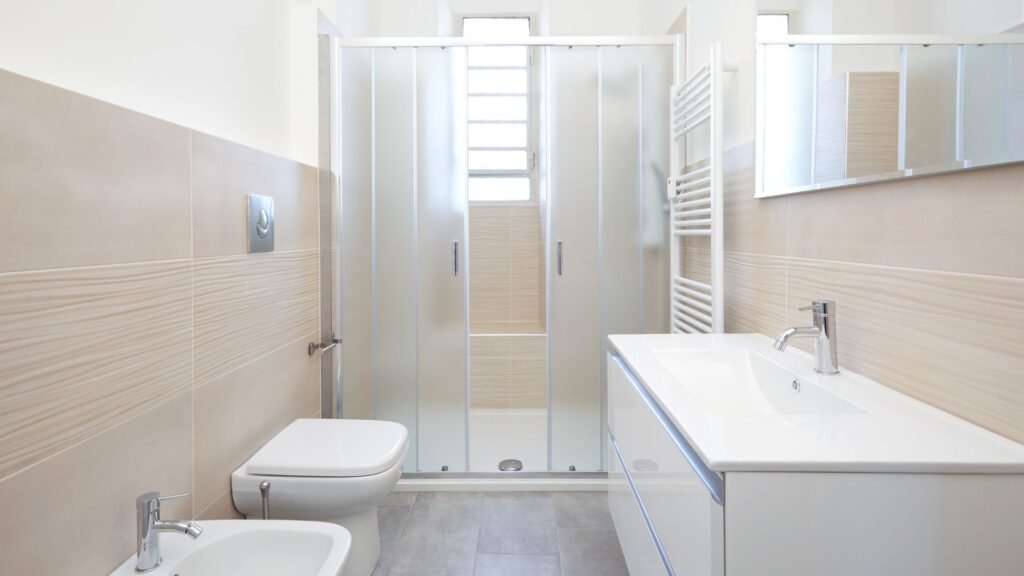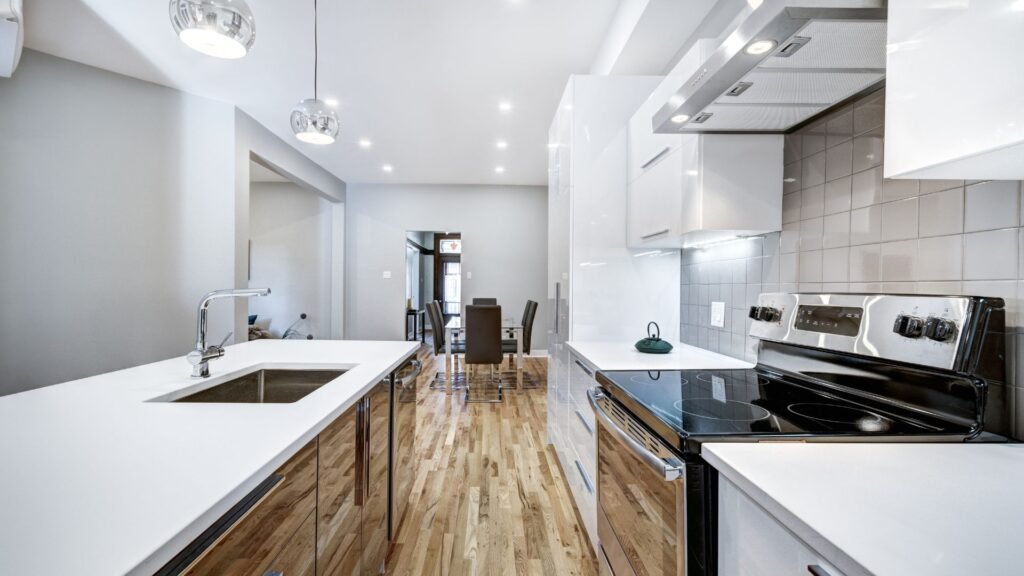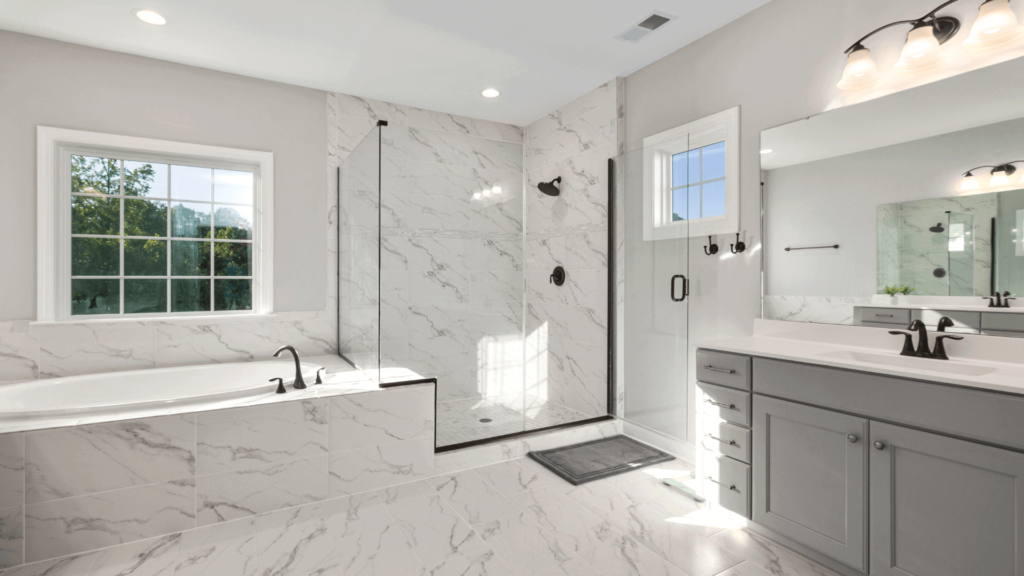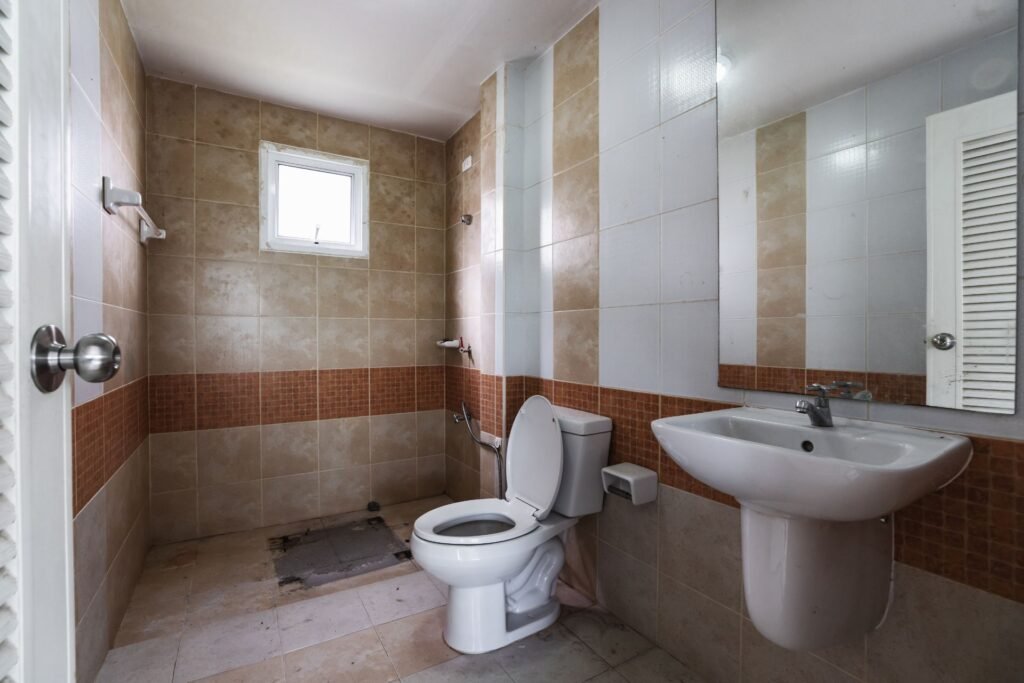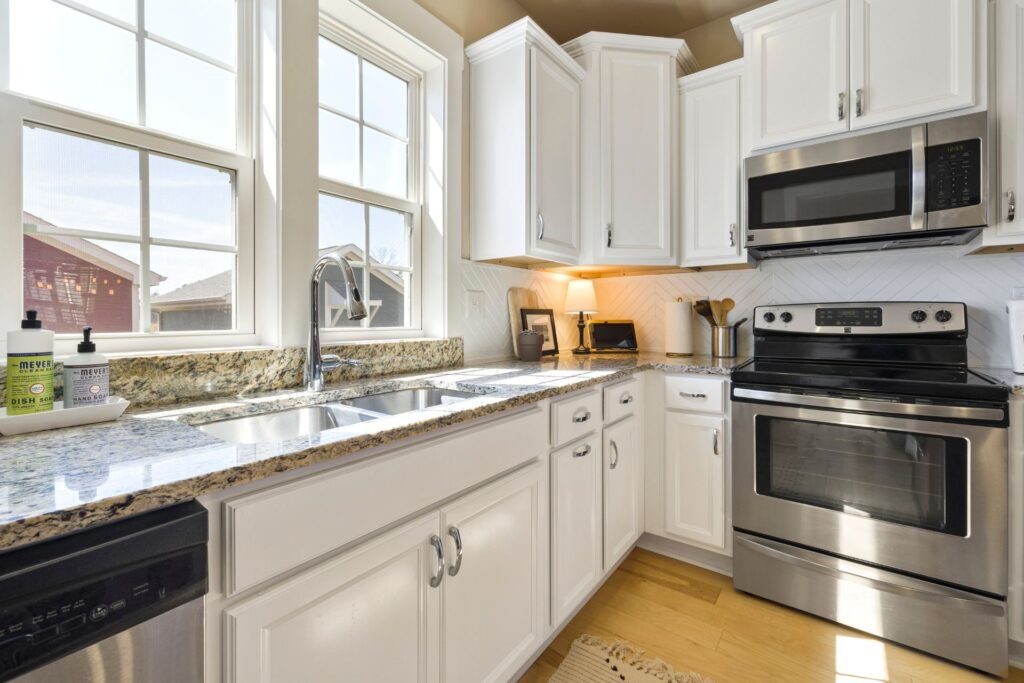Welcome to our complete guide on the cost of shower installation in NZ! Whether you’re building a new bathroom or renovating your existing space, understanding the costs involved in installing a shower is crucial to planning your budget effectively. From the different types of showers available to the materials, labor, and potential hidden costs, we’ll break down everything you need to know to make informed decisions. In this guide, you’ll discover how much you can expect to spend on a shower installation in New Zealand, along with tips to help you save money without sacrificing style or functionality.
The cost of shower installation in NZ typically ranges from $1,500 to $8,000, depending on factors such as the type of shower (prefabricated or custom), materials used, labor costs, and additional features like tiling and waterproofing. Basic installations fall on the lower end of the spectrum, while custom showers with premium materials and complex designs can significantly increase the price.
- Understanding Shower Installation Costs In NZ
- Types Of Showers And Their Costs
- Breakdown Of Shower Installation Costs
- Hidden Costs To Watch Out For
- DIY Vs. Hiring Professionals
- Cost-Saving Tips For Shower Installation
- Example Costs Of Shower Installation In Major NZ Cities
- How To Choose the Right Shower For Your Budget And Style
- FAQs: About Cost Of Shower Installation NZ
- How much does a basic shower installation cost in New Zealand?
- What factors influence the cost of shower installation?
- Is building consent required for shower installation in New Zealand?
- How much does custom shower installation cost?
- Can I install a shower myself to save money?
- What is the cost of waterproofing a shower in New Zealand?
- How long does it take to install a shower?
- What is the most affordable type of shower to install?
- Do I need an electrician for my shower installation?
- How can I reduce the cost of my shower installation?
- Conclusion
Understanding Shower Installation Costs In NZ
When planning a bathroom renovation, one of the key components to consider is the cost of installing a new shower. The overall expense can vary significantly depending on several factors such as the type of shower you choose, the materials used, labor costs, and your location in New Zealand. In this section, we’ll break down the typical costs you might encounter when installing a shower, from basic options to high-end custom setups.
Overview of the Average Costs
Shower installation costs in New Zealand are influenced by both the materials and the complexity of the installation. Here’s a general breakdown of the costs you can expect.
- Basic Shower Installation: For those on a budget, a basic shower installation can cost anywhere between $1,000 and $2,500 NZD. This typically includes a prefabricated shower unit, which is relatively simple to install. While the materials and design may be more functional than luxurious, it’s a solid choice for rental properties or quick updates.
- Mid-Range Shower Installation: If you’re looking for something a bit more stylish but not extravagant, mid-range shower installations generally fall in the $2,500 to $5,000 NZD range. This might involve better quality fixtures, a tiled shower base, and a glass shower door. It’s a popular choice for homeowners looking for a balance between aesthetics and cost.
- High-End or Custom Shower Installation: For those willing to invest in a premium bathroom experience, high-end or custom shower installations can exceed $5,000 NZD. Custom showers often include features such as bespoke tiling, multiple shower heads, frameless glass enclosures, and advanced water control systems. The sky’s the limit when it comes to customization, with prices reflecting the craftsmanship and materials involved.
Factors Influencing the Cost
Several factors can affect the final cost of your shower installation. Understanding these elements can help you budget more accurately and ensure that you get the most value for your money.
1. Type of Shower: The type of shower you choose has a significant impact on the cost. Prefabricated showers are generally cheaper, as they come in standard sizes and are easier to install. Custom-built showers, on the other hand, require more time, labor, and specialized materials, which drive up the cost. Walk-in showers with glass enclosures or wet rooms are more expensive due to their bespoke nature.
2. Materials: The choice of materials plays a major role in determining the overall cost. For example, standard acrylic or fiberglass shower enclosures are more affordable, while tiled walls or natural stone finishes can significantly increase expenses. The quality of the showerhead, taps, and other fixtures also contributes to the cost. Premium materials, such as frameless glass doors or high-end tiles, will elevate both the aesthetics and price.
3. Labor Costs: The cost of labor varies depending on your location and the complexity of the installation. In more remote areas of New Zealand, you might face higher labor charges due to limited availability of skilled tradespeople. A straightforward installation of a prefabricated shower will incur lower labor costs compared to a custom-designed shower, which requires more time and precision from your contractor.
4. Location: Where you live in New Zealand can affect the overall cost of shower installation. Urban areas such as Auckland and Wellington typically have higher costs due to increased demand for skilled labor and higher living expenses. Rural areas might offer lower labor costs but may also involve additional charges for transporting materials and contractors.
5. Plumbing and Electrical Work: If your shower installation involves moving or upgrading plumbing and electrical components, this will add to the overall expense. Older homes may require more extensive work to accommodate modern shower systems, including the installation of new pipes, drainage, or water pressure adjustments. Electrical work, such as adding lighting or installing a heated towel rail, can further increase the cost.
By considering these factors and understanding the range of costs, you can make more informed decisions when planning your shower installation. Whether you opt for a basic, mid-range, or high-end setup, being aware of the variables will help ensure that you stay within budget while achieving the desired results for your bathroom.

Types Of Showers And Their Costs
Choosing the right type of shower for your bathroom in New Zealand is a crucial decision that affects not only the aesthetics of your space but also your budget. Whether you’re working with a small space or looking for something high-end, there are a variety of options available, each with its own cost considerations. Let’s break down the most common types of showers and what you can expect to pay for them.
Prefabricated Showers
Prefabricated showers are a popular choice for homeowners looking for a budget-friendly, quick-install option. These units come as pre-made kits that are easy to install and often include the shower walls, base, and doors. In New Zealand, prefabricated showers can range in cost from around $800 to $2,500, depending on the quality of the materials and the size of the unit. Installation costs typically add another $500 to $1,500, depending on the complexity of the job and the rates of your chosen plumber or installer.
Pros of Prefabricated Showers
- Affordability: One of the most cost-effective options on the market.
- Quick Installation: Prefabricated units can often be installed in just a day or two.
- Variety: Available in a wide range of styles and sizes to suit different bathroom layouts.
Cons of Prefabricated Showers
- Limited Customization: You’re restricted to the sizes and designs offered by manufacturers.
- Durability: While many prefabricated showers are built to last, lower-end models may not be as robust as custom-built alternatives.
If you’re looking for an affordable and efficient solution, prefabricated showers offer a solid balance of cost and convenience.
Custom Showers
For those who want a truly unique bathroom experience, custom showers provide endless possibilities in terms of design, materials, and features. Custom showers are built from scratch, which allows you to select everything from the type of tile to the size and placement of fixtures. In New Zealand, the cost of building a custom shower starts at around $3,000 but can easily exceed $10,000, depending on the materials and finishes chosen. Labor costs will also play a significant role, as custom showers require skilled professionals such as plumbers, tilers, and sometimes even waterproofing experts.
Pros of Custom Showers
- Personalization: You have complete control over the design, ensuring that the shower perfectly fits your style and space.
- High-End Materials: Custom showers often use premium materials, which can enhance both the durability and appearance of the shower.
- Increased Home Value: A well-designed custom shower can significantly boost the value of your home.
Cons of Custom Showers
- Higher Costs: Customization comes at a price, with both materials and labor being more expensive.
- Longer Installation Time: Custom showers require more time to plan and build, leading to a longer construction period.
While custom showers offer unparalleled design flexibility, they are best suited for homeowners willing to invest both time and money into creating a one-of-a-kind bathroom.
Shower Over Bath Installations
Shower over bath installations are a practical solution for smaller bathrooms or for those who want the option of both a bath and a shower without sacrificing space. This setup involves installing a shower head and often a glass screen over an existing bath. The cost of installing a shower over a bath in New Zealand can vary, but you can expect to pay between $1,500 and $3,500, depending on the quality of the fittings and the complexity of the installation.
Benefits of Shower Over Bath Installations
- Space-Saving: Ideal for smaller bathrooms, where fitting both a separate shower and bath is not feasible.
- Versatility: Offers the convenience of both a shower and a bath in one unit.
- Cost-Effective: Generally less expensive than building a separate shower stall, as it utilizes existing plumbing.
While shower over bath installations may not have the sleek, modern look of a dedicated shower, they are a great option for maximizing functionality in a compact space.
Walk-In Showers
Walk-in showers are becoming increasingly popular in modern homes due to their sleek design and accessibility. These showers have no door or curtain and often feature a glass panel or no enclosure at all, creating a seamless and open feel. The cost of a walk-in shower in New Zealand typically starts around $3,500 and can go up to $10,000 or more, depending on the materials and features chosen. Walk-in showers require waterproofing, tiling, and precise plumbing work, all of which add to the overall cost.
Benefits of Walk-In Showers
- Modern Aesthetic: Walk-in showers have a clean, contemporary look that can elevate the design of your bathroom.
- Accessibility: These showers are easy to enter and exit, making them an excellent choice for those with mobility issues.
- Easy to Clean: With fewer nooks and crannies than traditional shower enclosures, walk-in showers are often easier to maintain.
However, walk-in showers tend to be on the higher end of the cost spectrum due to the level of customization involved, making them a premium choice for homeowners seeking both style and functionality.
When choosing the type of shower for your bathroom, it’s essential to balance your budget, the space available, and your personal preferences. Whether you’re opting for a budget-friendly prefabricated unit or splurging on a custom walk-in design, understanding the costs involved will help you make an informed decision that enhances both the function and value of your home.
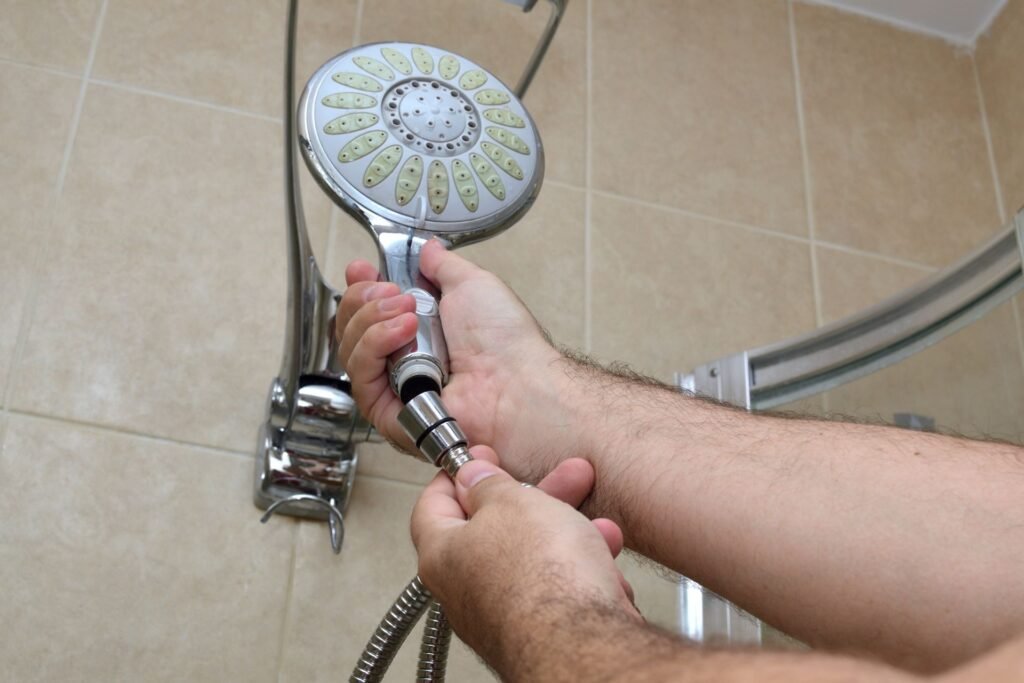
Breakdown Of Shower Installation Costs
Shower installation costs can vary significantly based on a number of factors, such as the materials you choose and the complexity of the labor involved. Here’s a breakdown of what you can expect for both materials and labor when installing a new shower in New Zealand.
Materials
Shower Fixtures
Shower fixtures are one of the key components that influence the overall cost of your installation. This includes everything from the showerhead to the valves and taps. The price for these fixtures can vary widely depending on the quality, brand, and style you select. For example:
- Basic shower heads: These can cost as little as $50 for a simple, functional model.
- High-end shower heads: These can go up to $800 or more for a luxury rainfall shower or a model with multiple settings.
- Valves and taps: Standard valves can cost around $100-$200, while premium, designer options may cost upwards of $500.
When selecting shower fixtures, it’s important to consider not just the upfront cost but also the longevity and functionality. Investing in higher-quality fixtures may save you money in the long run by avoiding costly repairs or replacements.
Tiles vs. Acrylic Walls
When it comes to shower walls, you’ll have the choice between tiling and prefabricated acrylic or fiberglass panels. Both options have their own cost implications:
- Tiles: The cost of tiling a shower can vary based on the type of tile you choose. Basic ceramic tiles start around $20-$30 per square meter, while more intricate porcelain or natural stone tiles can reach $100 per square meter or more. Tiling also tends to require more labor, which increases the overall cost.
- Acrylic or fiberglass panels: These prefabricated panels offer a quicker and often more affordable installation process. Prices typically range from $400 to $1,000 for a complete set of panels. Acrylic or fiberglass panels are easier to maintain, but they may not have the same aesthetic appeal or durability as tiles.
Choosing between tiles and acrylic panels will depend on your budget, design preferences, and willingness to invest in maintenance over time.
Glass Doors vs. Shower Curtains
Another significant material cost is the choice between glass shower doors and alternatives like shower curtains or screens:
- Glass doors: A frameless glass shower door can elevate the look of your bathroom, but it comes at a price. Expect to pay between $1,000 and $2,500 for a high-quality frameless door, including installation. Semi-frameless or framed options are slightly more affordable, ranging from $500 to $1,200.
- Shower curtains or screens: For a budget-friendly option, shower curtains cost as little as $20-$50. Fixed or movable shower screens are a middle-ground option and can cost between $150 and $600, depending on the material and design.
Your choice between glass doors, screens, or curtains will depend on your aesthetic preferences and the level of investment you’re willing to make in your shower enclosure.
Labor
Plumbing Costs
Labor costs are a significant factor in any shower installation, particularly if you need plumbing work done. The hourly rate for a plumber in New Zealand typically ranges from $70 to $150. However, these rates can increase if your installation requires complex work, such as relocating plumbing lines. If your new shower is part of a complete bathroom renovation, expect higher costs due to the need to connect new plumbing to existing water lines, which can be time-consuming and complex.
For basic installations where plumbing lines are already in place, labor costs may be on the lower end of the scale. However, if your shower is being installed in a new location or you’re upgrading to a more advanced shower system (e.g., a rainfall or multiple-head shower), you could face additional plumbing expenses.
Tiling or Wall Panel Installation
The labor costs associated with installing tiles or wall panels can also vary based on the complexity of the job and the material chosen:
- Tiling: Installing tiles is labor-intensive, with typical rates ranging from $40 to $70 per square meter. If you’re using smaller or more intricate tiles, labor costs may be higher due to the increased time required for installation.
- Acrylic or fiberglass panels: These are generally quicker to install than tiles, resulting in lower labor costs. Installation of panels typically ranges from $300 to $700, depending on the size of your shower and the type of panels being installed.
It’s also worth noting that labor costs can increase if your walls are uneven or if additional work is needed to waterproof the area before installation.
Electrical Work
If you’re adding any electrical elements to your shower area, such as lighting, heated towel rails, or underfloor heating, you’ll need to budget for electrical work. The cost for electrical work in a bathroom varies based on the complexity of the job:
- Lighting installation: Adding lighting can cost between $200 and $500, depending on the type of fixtures and wiring required.
- Heated towel rails: Installing a heated towel rail can range from $250 to $600, including labor and materials.
- Underfloor heating: This luxurious addition comes with a higher price tag, typically ranging from $1,500 to $3,000 for installation, depending on the size of your bathroom.
Electrical work must be carried out by a licensed electrician to ensure compliance with local regulations, so make sure to factor this into your overall budget.
By understanding the various materials and labor costs involved in shower installation, you can make informed decisions that align with your budget and preferences. From selecting high-quality fixtures to deciding between tiles and panels, and budgeting for labor, every choice you make will affect the final cost. Proper planning and working with experienced professionals will help ensure that your new shower is both functional and stylish, while avoiding unexpected expenses down the road.

Hidden Costs To Watch Out For
When embarking on a shower installation project in New Zealand, it’s easy to focus solely on the upfront costs of materials and labour. However, there are often hidden costs that can surprise homeowners if not properly planned for. Let’s take a look at some of these overlooked expenses and why they are important to consider.
Building Consent and Compliance
In New Zealand, building consent is often required for various types of bathroom renovations, particularly when it involves a new shower installation. The reasons for requiring consent can vary based on the type of renovation and the scope of work involved. Generally, building consent is needed if you’re altering any existing plumbing systems, changing the location of fixtures, or making structural changes. For example, if you’re installing a tiled shower rather than a prefabricated unit, this will almost certainly require consent.
Why is this the case? Building consent ensures that your bathroom renovation complies with the New Zealand Building Code, which governs the health, safety, and durability of your home. Skipping this step can lead to non-compliance, which could cause problems when it comes time to sell your home or, worse, lead to safety issues.
The costs associated with obtaining building consent can vary depending on your local council and the complexity of the project. In general, you can expect to pay anywhere between $400 to $1,000 for the consent application alone. Additionally, you may also incur costs for inspections or professional advice from an architect or building consultant to ensure everything is done according to code.
Repairs and Alterations
During the renovation process, it’s not uncommon to uncover the need for unexpected repairs or alterations. For instance, once the old shower or bath is removed, you might discover water damage to the walls or flooring beneath. Moisture can easily seep into areas that aren’t visible, especially in older homes where waterproofing may have been inadequate or has deteriorated over time.
In some cases, structural alterations may be necessary to accommodate the new shower design, especially if it involves expanding the shower area or repositioning the fixtures. These repairs and alterations can quickly add to your overall renovation budget, and the costs can vary significantly based on the extent of the work required. It’s important to allocate a contingency fund of at least 10-15% of your budget to cover these potential surprises.
Waterproofing
Waterproofing is one of the most critical components of a successful bathroom renovation. Inadequate waterproofing can lead to leaks, mold growth, and significant structural damage, all of which can be costly to rectify down the line. It is a non-negotiable step when installing a new shower, particularly in wet areas like the bathroom, where water exposure is constant.
In New Zealand, the Building Code requires that any shower installation must have adequate waterproofing. The materials and application must meet specific standards, and this can add to the overall cost of your renovation. Waterproofing costs will depend on the size of the area being waterproofed and the materials used, but you can typically expect to spend between $500 and $2,000 on this essential aspect of the project.
The importance of proper waterproofing cannot be overstated. Skimping on waterproofing can lead to long-term issues that are much more expensive to fix than the initial outlay for doing it right the first time. Always ensure you hire a licensed professional who understands the regulations and uses high-quality materials to safeguard your investment.
By being aware of these hidden costs, you can plan your shower installation project more effectively and avoid unpleasant financial surprises. From securing building consent to ensuring proper waterproofing, these factors are critical to the success of your renovation and the long-term durability of your bathroom.
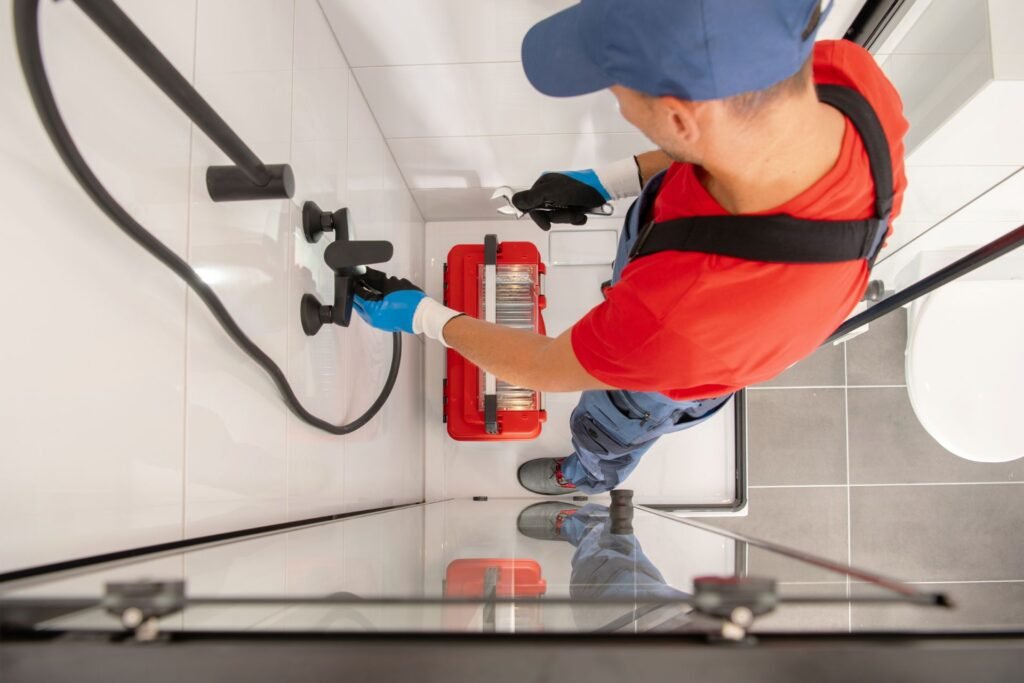
DIY Vs. Hiring Professionals
DIY Shower Installation
Can you do it yourself
Installing a shower by yourself can seem like a cost-effective option, especially if you’re handy and enjoy tackling home improvement projects. Many homeowners are tempted by the prospect of saving hundreds, if not thousands, on labor costs. But while DIY shower installation may seem appealing, it comes with significant responsibilities and risks that need careful consideration.
Pros of DIY Shower Installation
One of the primary advantages of DIY shower installation is the potential to save on labor costs, which often make up a large portion of the total expense. If you’re on a tight budget and feel confident in your skills, taking the DIY route can free up funds for other aspects of your renovation. You also have full control over the project timeline, meaning you won’t have to wait for a contractor’s schedule to open up. Additionally, completing a shower installation on your own can give you a sense of personal accomplishment.
Cons of DIY Shower Installation
On the flip side, the DIY approach comes with its share of pitfalls. Shower installation involves plumbing, waterproofing, and sometimes electrical work—each requiring a specific set of skills. One mistake in any of these areas can lead to significant issues down the road, such as leaks, mold, or even structural damage. What might seem like a cost-saving decision could ultimately result in expensive repairs. Additionally, certain materials and fixtures are difficult to work with, and without experience, you could end up with a less-than-professional result. Beyond that, local regulations may require certified professionals for certain types of plumbing work.
When is DIY Appropriate
DIY shower installation may be suitable for simpler projects, such as replacing fixtures or working with pre-fabricated shower units that don’t require extensive plumbing changes. If you’re familiar with the tools and materials involved and have some prior experience with similar projects, DIY could be a viable option. However, for more complex installations—such as custom tile work, rerouting plumbing lines, or working with multiple water fixtures—it’s often safer and more effective to hire a professional.
Hiring Professionals
What to Look for in a Professional
When deciding to hire a professional for your shower installation, it’s essential to find someone reputable and experienced. Begin by researching contractors or plumbers who specialize in bathroom renovations. Look for credentials such as licensing and insurance, which are non-negotiable for protecting both your home and the workers. Check reviews and testimonials from previous clients to gauge the quality of their work and professionalism. It’s also worth asking for references and examples of past projects to ensure that the contractor’s style and expertise align with your vision. Additionally, make sure to get detailed estimates and timelines from multiple professionals to compare options before making a final decision.
Cost of Hiring a Professional
Hiring a professional will generally increase the overall cost of your shower installation, but it comes with significant benefits. Professional fees can vary depending on factors such as location, project complexity, and the contractor’s level of experience. On average, you can expect labor costs to range from $60 to $150 per hour for a licensed plumber. Installation of a simple shower system may cost between $1,000 and $2,000 in labor alone, while more complex installations could run higher.
Beyond labor, hiring professionals often involves additional costs such as permits, which are required in many areas for significant plumbing work. These permits can range from $50 to $300, depending on your local regulations. Professionals typically include the cost of materials, such as plumbing pipes, adhesives, and waterproofing products, in their estimates, which ensures that you’re getting high-quality supplies tailored to the job. While this may seem like an extra expense, the peace of mind that comes with knowing the job is done right often outweighs the upfront cost.
The decision between DIY and hiring professionals comes down to your personal skill level, the complexity of the project, and your budget. While DIY offers savings and flexibility, hiring professionals ensures quality, safety, and compliance with local building codes, making it a worthwhile investment for more intricate shower installations.

Cost-Saving Tips For Shower Installation
When it comes to installing a new shower, costs can quickly add up. However, by making strategic choices throughout the process, you can keep expenses down without compromising on quality. Here are some tips to help you save money during your shower installation.
Choosing Affordable Materials
Finding the right balance between affordability and durability is key when selecting materials for your shower. While it might be tempting to go for high-end finishes, there are many budget-friendly options that offer the same level of performance and aesthetic appeal. For instance, acrylic or fiberglass shower surrounds are cost-effective alternatives to tile, which can be more labor-intensive and expensive to install. These materials are also durable, easy to maintain, and available in a variety of styles that can mimic the look of more expensive options. When shopping for materials, consider visiting local hardware stores or online marketplaces where you might find discounted or clearance items that still meet your quality standards.
Prefabricated vs. Custom Options
One of the most significant decisions you’ll face during your shower installation is whether to opt for a prefabricated shower unit or go the custom route. Prefabricated showers are typically more affordable because they are mass-produced and easier to install. These units come in standard sizes and designs, making them a good option if you’re on a tight budget. On the other hand, custom showers allow you to tailor the space to your specific needs and preferences, but they often come with a much higher price tag due to the additional labor and materials required. If saving money is your priority, choosing a prefabricated shower can significantly reduce your overall costs while still providing a functional and stylish result.
Smart Planning
Proper planning is crucial when installing a new shower, especially if you want to avoid unexpected costs. Start by carefully mapping out your bathroom layout before any work begins. One way to keep costs down is by minimizing changes to existing plumbing. Moving pipes or drains can quickly increase labor expenses, so try to work with the current setup whenever possible. Additionally, plan for efficient use of space. For example, a corner shower might be more cost-effective if you have limited square footage, as it requires fewer materials and labor than a large, freestanding unit. Consulting with a contractor during the planning phase can also help you identify areas where you can cut costs without sacrificing quality or functionality.
By choosing affordable materials, opting for prefabricated units, and planning your layout wisely, you can install a shower that meets your needs while staying within your budget. These small but effective decisions can make a big difference in the overall cost of your bathroom renovation.

Example Costs Of Shower Installation In Major NZ Cities
When it comes to installing a new shower, costs can vary significantly depending on the region within New Zealand. Understanding these price differences helps homeowners budget more effectively for their bathroom renovations. Let’s break down the example costs of shower installation in major NZ cities and rural areas, taking into account local market conditions, labor availability, and material costs.
Auckland
In Auckland, the average cost of a shower installation can range from $3,000 to $6,500. This price is often higher than in other regions due to Auckland’s booming housing market and increased demand for qualified tradespeople. Auckland is New Zealand’s most populous city, meaning there’s a high demand for contractors, which drives up labor costs. Additionally, the cost of living is higher here, which contributes to increased pricing for everything from materials to permits. Traffic congestion and longer travel times for contractors can also add to labor charges, pushing installation costs even higher.
Wellington
Shower installation costs in Wellington tend to be somewhat lower than Auckland, with prices generally ranging from $2,500 to $5,500. This difference is partially due to Wellington’s smaller population size and a more stable housing market. The windy city also benefits from a relatively accessible layout, which reduces transportation and logistical challenges for contractors. However, specific factors such as Wellington’s terrain and building codes for earthquake resilience can introduce unique challenges, potentially raising costs if significant reinforcement work is needed.
Christchurch
In Christchurch, shower installation costs typically fall within the $2,800 to $5,800 range. The rebuild following the earthquakes has increased demand for construction work, but this is balanced out by the availability of contractors eager to take on projects. The costs here can vary based on the specific area within Christchurch, with newly developed suburbs potentially seeing higher costs due to the influx of new housing and demand for modern amenities. However, the competitive nature of the construction industry in Christchurch keeps prices relatively moderate.
Rural Areas
Shower installation in rural areas can range anywhere from $2,000 to $5,000, depending largely on the proximity to major cities. In more remote areas, the cost of materials might be higher due to the need for transportation from urban centers. Additionally, labor availability is a significant factor; rural areas often have fewer contractors, which can lead to higher quotes for the work. On the other hand, if you’re in a semi-rural area with good access to nearby towns, prices may be closer to those in small cities. However, any difficulties related to access or transportation can escalate both material and labor costs.
Each city and region in New Zealand presents unique factors that affect the cost of shower installation. Homeowners should consider these regional variations when budgeting for their renovation projects, ensuring they account for local conditions, labor availability, and material access.

How To Choose the Right Shower For Your Budget And Style
When it comes to choosing the perfect shower, striking a balance between budget and style is key. Your shower is more than just a functional part of your bathroom—it’s a space where you can unwind and refresh. Here’s how you can make sure you get the best option, no matter your budget.
Budget-Friendly Showers
If you’re working with a tight budget, it doesn’t mean you have to settle for a basic or bland shower. There are plenty of affordable shower options that still look stylish and function effectively. Consider a standard shower set with a simple handheld or fixed showerhead. These sets often come in sleek chrome finishes that can complement almost any bathroom decor. Look for options with water-saving features, as they can help keep utility bills low without compromising on the pressure or experience. Brands like Methven or Caroma offer cost-effective solutions that don’t sacrifice design, and you can find options that fit comfortably into the lower price range without making your bathroom feel cheap.
When selecting a budget-friendly shower, think about shower enclosures or over-bath shower designs. These tend to be less expensive but still provide a clean and modern look. Opting for clear glass or simple plastic panels can give your bathroom a more open feel without driving up the cost.
Mid-Range Options
If you’re ready to invest a bit more, mid-range showers offer a wonderful balance of style, quality, and affordability. These options typically provide better materials, higher durability, and added features without stepping into the luxury price bracket. Think about upgrading to a dual shower system, where you can have both a handheld and a rain showerhead. This gives you more flexibility, allowing you to switch between a soothing rainfall effect or a more focused stream.
For mid-range styles, you can find showers with polished finishes, brushed nickel, or even matte black fixtures, which are trending in modern bathrooms. Frameless glass enclosures can elevate the look of your shower while maintaining a clean, minimalistic vibe. Another feature worth considering in this range is adjustable shower heads with multiple spray settings, providing a spa-like experience without breaking the bank.
Luxury Shower Ideas
If money isn’t an issue and you’re looking to create a true spa-like experience at home, luxury showers offer endless possibilities. Think large, open walk-in showers with rain shower heads that mimic a natural waterfall. Pair these with body jets that provide a full-body massage experience, making every shower feel like a high-end retreat.
Luxury showers often include features like smart technology, which allows you to control water temperature, pressure, and even lighting via a touchpad or your smartphone. You can program your shower to your exact preferences, ensuring the perfect experience every time. Materials like marble, high-end tile, and custom glass enclosures can make your shower a stunning centerpiece in your bathroom. For the ultimate luxury experience, consider adding a steam shower feature, which can help you unwind after a long day and provide added health benefits.
No matter your budget, there’s a shower option that can suit both your financial needs and your personal style. With a bit of planning and smart choices, you can find a shower that not only fits within your price range but also enhances your overall bathroom experience.
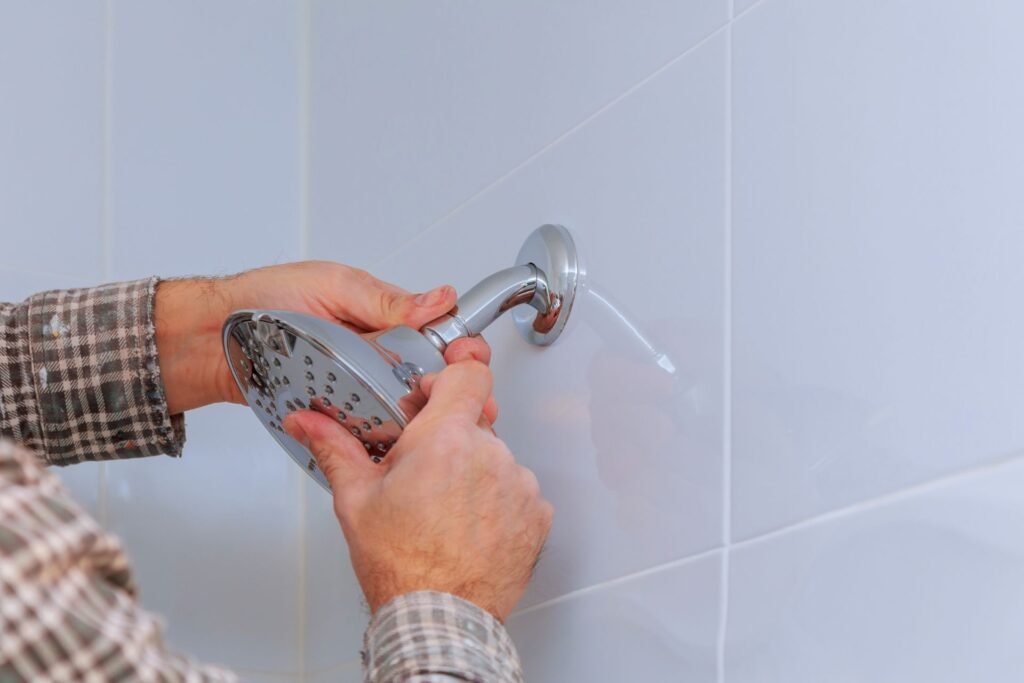
FAQs: About Cost Of Shower Installation NZ
How much does a basic shower installation cost in New Zealand?
A basic shower installation in New Zealand typically costs between $1,500 and $3,000, depending on the materials used and the complexity of the installation. Prefabricated shower units and minimal plumbing work usually keep the costs on the lower end.
What factors influence the cost of shower installation?
The cost of shower installation is influenced by several factors, including the type of shower (prefabricated or custom), the materials chosen (tiles, acrylic, or glass), labor costs (plumbing, tiling, and electrical work), and any additional features like waterproofing or heating elements.
Is building consent required for shower installation in New Zealand?
In some cases, building consent may be required for a shower installation, particularly if structural changes are involved, such as moving plumbing or altering walls. It’s best to check with your local council to determine if consent is necessary for your project.
How much does custom shower installation cost?
Custom shower installations in New Zealand can range from $4,000 to $8,000 or more, depending on the design complexity, materials, and labor required. Custom showers offer flexibility in style and features but come at a higher price than prefabricated units.
Can I install a shower myself to save money?
While DIY shower installation can save money, it’s typically recommended for individuals with experience in plumbing and construction. Improper installation can lead to water damage or costly repairs, so hiring a professional may be more cost-effective in the long run.
What is the cost of waterproofing a shower in New Zealand?
Waterproofing a shower in New Zealand can cost between $500 and $1,500, depending on the size of the shower and the materials used. Waterproofing is essential to prevent leaks and water damage, especially in tiled showers.
How long does it take to install a shower?
Shower installation typically takes between 1 to 3 days, depending on the complexity of the project. Prefabricated showers may be installed faster, while custom showers with tiling, glass doors, and other features may require additional time.
What is the most affordable type of shower to install?
Prefabricated shower units are generally the most affordable type of shower to install. They come in standard sizes and styles, which reduce both material and labor costs. These units are ideal for budget-conscious homeowners.
Do I need an electrician for my shower installation?
An electrician may be required for shower installations that involve electrical work, such as installing lighting, heated towel rails, or underfloor heating. The cost of hiring an electrician will vary depending on the scope of the work.
How can I reduce the cost of my shower installation?
To reduce the cost of shower installation, consider choosing more affordable materials like acrylic panels instead of tiles, opting for prefabricated shower units, and minimizing any major plumbing or structural changes. Getting multiple quotes from professionals can also help you find the best deal.
Conclusion
When considering the cost of shower installation in NZ, it’s essential to remember that prices can vary depending on factors like the type of shower, labor costs, and additional features such as waterproofing and tiling. It’s always a smart move to get multiple quotes from licensed professionals to compare prices and ensure you’re getting the best deal without compromising quality. By consulting with a contractor, you can explore options that fit your specific budget and bathroom needs, ensuring a successful and stress-free installation process. Whether you’re opting for a simple upgrade or a complete bathroom renovation, being informed and seeking expert advice can make all the difference.
About the Author:
Mike Veail is a recognized digital marketing expert with over 6 years of experience in helping tradespeople and small businesses thrive online. A former quantity surveyor, Mike combines deep industry knowledge with hands-on expertise in SEO and Google Ads. His marketing strategies are tailored to the specific needs of the trades sector, helping businesses increase visibility and generate more leads through proven, ethical methods.
Mike has successfully partnered with numerous companies, establishing a track record of delivering measurable results. His work has been featured across various platforms that showcase his expertise in lead generation and online marketing for the trades sector.
Learn more about Mike's experience and services at https://theleadguy.online or follow him on social media:
